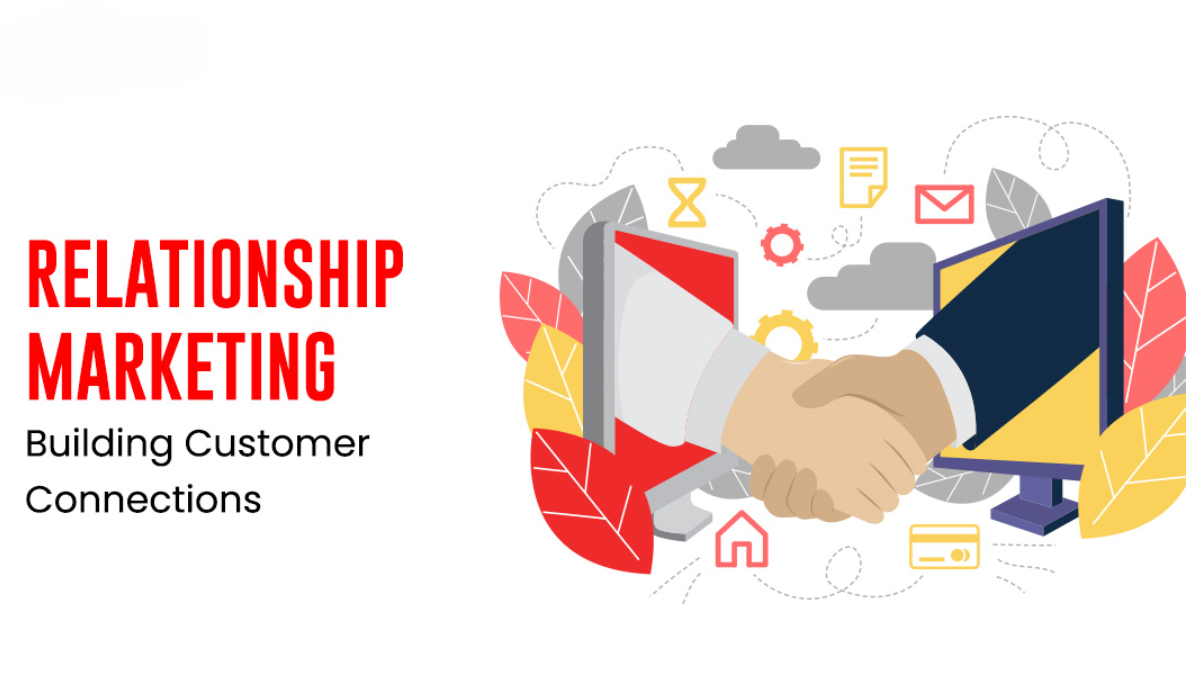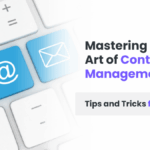Introduction
In a world saturated with advertising noise and transactional business models, companies that thrive are those that forge genuine, lasting relationships with their customers. Relationship marketing shifts the focus from simply acquiring customers to nurturing them long-term. Instead of treating each transaction as a standalone event, businesses are investing in creating meaningful connections that foster loyalty, repeat business, and word-of-mouth referrals.
This article explores the principles, strategies, and long-term benefits of relationship marketing, offering actionable insights to help businesses create deeper and more authentic connections with their customers.
1. What Is Relationship Marketing?
Relationship marketing is a strategic approach that emphasizes long-term customer engagement over short-term sales. Its goal is to build strong, emotional, and personalized relationships with customers to encourage brand loyalty and continuous interaction.
Unlike traditional marketing that often relies on promotions and pricing, relationship marketing is centered on trust, satisfaction, value, and communication. The better the relationship, the higher the chance of customer retention and advocacy.
2. Why Relationship Marketing Matters Today
In today’s customer-driven landscape, product quality and pricing alone are not enough to ensure loyalty. Consumers now expect brands to understand, value, and engage with them on a personal level. Businesses that excel in relationship marketing benefit in several ways:
- Higher Retention Rates: Loyal customers tend to stick around, reducing the need for constant acquisition efforts.
- Increased Customer Lifetime Value (CLV): Satisfied customers are more likely to purchase again and spend more over time.
- Positive Word-of-Mouth: Happy customers become brand advocates, referring others organically.
- Competitive Advantage: Companies that build relationships are more resilient to competitors and market changes.
3. Core Principles of Relationship Marketing
To implement relationship marketing successfully, businesses must adopt the following core principles:
a) Customer-Centric Mindset
Place customer needs and experiences at the core of business decisions. Understand their goals, challenges, and expectations.
b) Trust and Transparency
Build credibility by being honest and open in communication. Address concerns promptly and deliver on promises consistently.
c) Personalization
Go beyond generic messages. Tailor offers, communications, and support to individual customer preferences and behaviors.
d) Two-Way Communication
Engage in meaningful conversations, listen actively, and respond in ways that make customers feel heard and valued.
e) Consistency Across Touchpoints
Whether through email, phone, social media, or in-person, ensure a consistent and cohesive brand experience.
4. Effective Relationship Marketing Strategies
a) Loyalty Programs
Create reward systems that recognize and appreciate customer loyalty. Offer points, discounts, or exclusive benefits for continued engagement.
b) Personalized Email Campaigns
Send targeted and timely emails based on customer behavior, preferences, or milestones like birthdays and anniversaries.
c) Customer Feedback Loops
Ask for feedback regularly and act on it. Let customers know their opinions shape your products and services.
d) Educational Content and Resources
Offer valuable content that helps customers make informed decisions. This could include tutorials, guides, tips, or industry insights.
e) Exclusive Access and Experiences
Invite top customers to special events, product previews, or early access opportunities to foster exclusivity and deeper engagement.
f) Customer Support Excellence
Provide fast, friendly, and helpful service across all channels. Train your teams to handle inquiries with empathy and urgency.
g) Community Building
Foster customer communities online or offline where they can connect, share experiences, and provide support to each other.
5. Leveraging Technology in Relationship Marketing
Technology can significantly enhance relationship marketing efforts:
- Customer Data Platforms: Centralize customer information to gain deeper insights.
- Marketing Automation: Send timely, relevant messages based on customer behavior.
- Social Listening Tools: Monitor customer sentiment and trends across digital platforms.
- Feedback & Survey Tools: Gather insights and measure satisfaction in real time.
When used thoughtfully, technology enables businesses to maintain human connections at scale.
6. Measuring Relationship Marketing Success
To understand the impact of relationship marketing, monitor key performance indicators such as:
- Customer Retention Rate
- Repeat Purchase Rate
- Customer Lifetime Value (CLV)
- Net Promoter Score (NPS)
- Engagement Metrics (open rates, click-throughs, etc.)
- Referral Rates
These metrics provide insight into how well your relationship-building efforts are working and where adjustments are needed.
7. Challenges in Relationship Marketing
Despite its benefits, relationship marketing presents some challenges:
- Time-Intensive: Building relationships takes longer than executing one-time promotions.
- Data Management: Collecting and maintaining accurate customer data requires effort and resources.
- Consistency Across Channels: Ensuring a seamless experience across platforms can be complex.
- Measuring Intangibles: Emotional connections and brand perception are harder to quantify.
Overcoming these challenges requires a mix of strategic planning, employee training, and the right tools.
8. Long-Term Benefits of Strong Customer Connections
Businesses that succeed in relationship marketing enjoy a ripple effect of benefits:
- Resilience in Economic Downturns: Loyal customers are more likely to stick with you during tough times.
- Higher Profit Margins: Long-term customers often require less support and are more receptive to premium offerings.
- Brand Advocacy: Customers who feel connected become natural ambassadors, promoting your brand without being asked.
- Greater Insight: Continuous relationships provide valuable feedback and inspiration for innovation.
Conclusion
Relationship marketing is not a one-time effort—it’s a long-term strategy rooted in trust, value, and mutual growth. Modern customers seek more than transactions; they want to feel appreciated, understood, and connected. Businesses that embrace relationship marketing will cultivate stronger customer loyalty, increase retention, and ultimately drive sustainable growth.
Start small, personalize every interaction, listen more than you speak, and always follow through. The emotional bonds you build today will become the foundation for tomorrow’s business success.
Frequently Asked Questions (FAQs)
Q1: What makes relationship marketing different from traditional marketing?
A: Traditional marketing focuses on single transactions and quick sales, while relationship marketing aims to build long-term customer engagement and loyalty.
Q2: Is relationship marketing only for large businesses?
A: No. Small and medium businesses can benefit just as much—if not more—because they often have the agility and personalization capabilities that larger businesses lack.
Q3: How do I start implementing relationship marketing?
A: Begin by understanding your customers, collecting and organizing data, communicating consistently, and offering personalized experiences.
Q4: What are the best tools for relationship marketing?
A: Tools that help with email automation, customer data management, feedback collection, and social media engagement are all useful.
Q5: How do I know if my relationship marketing is working?
A: Track metrics like repeat purchase rate, customer satisfaction scores, engagement levels, and the number of referrals you receive.



